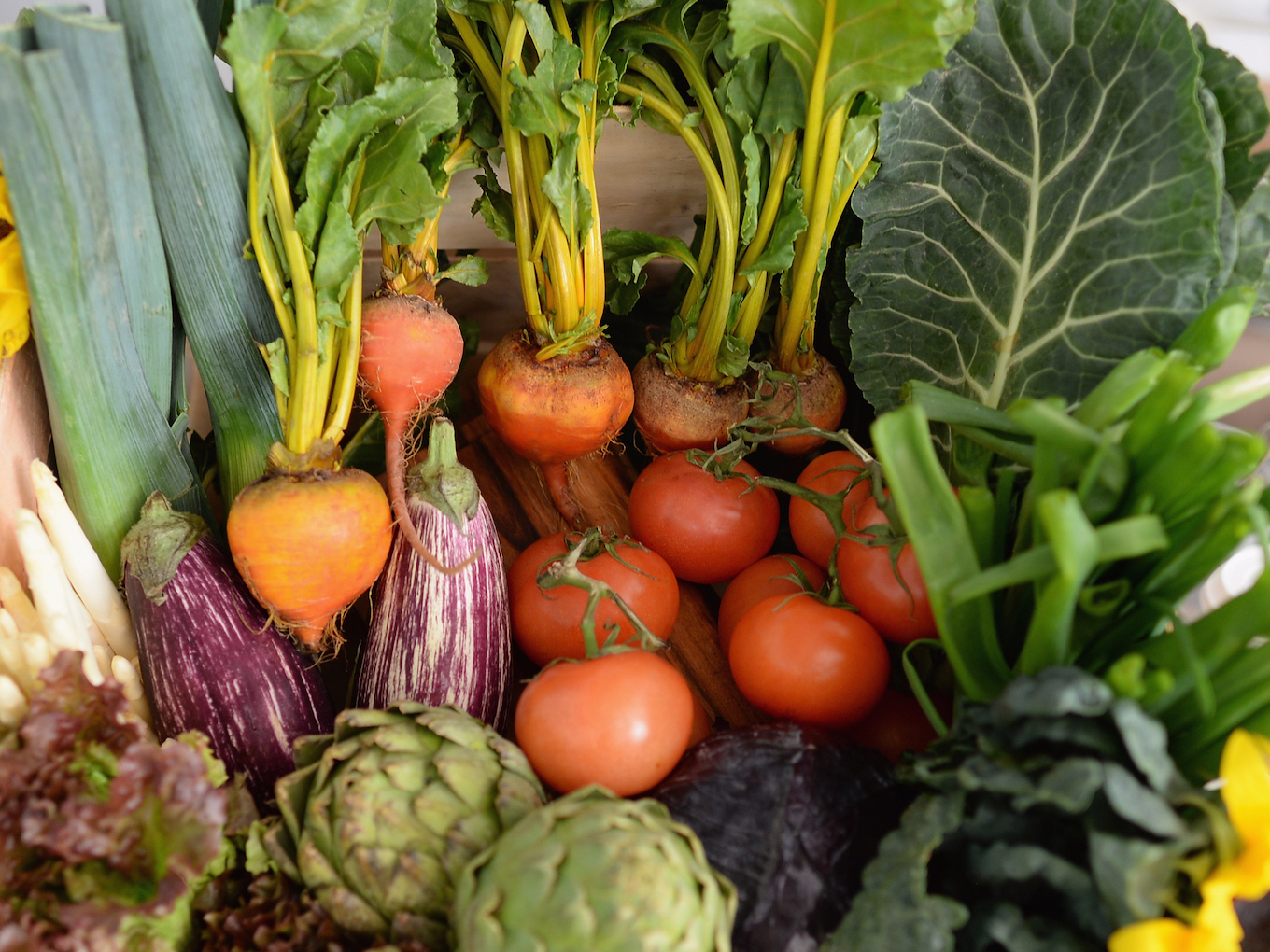Chances are good that you don’t think twice about the way you store your vegetables. Like most people, you probably buy them, put them in a plastic bag, take them home, and stuff them in your fridge wherever they fit until you’re ready to use them. If that’s the case, then you’re probably storing most of them the wrong way.
Here are some vegetables you’re probably storing the wrong way, with tips on how to store them correctly so that they last longer.
You should keep onions in a dry, cool place instead of in the fridge.
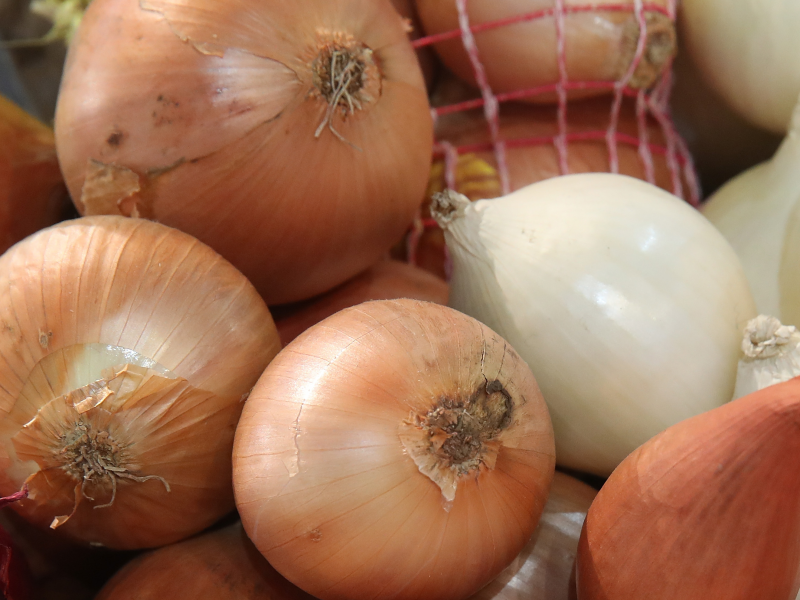
Onions easily absorb moisture, which makes them rot.
According to the National Onion Association, they are best stored in a cool, dry, dark, and well-ventilated room, like a pantry, cellar, basement, or garage.
Onions should also be stored alone as they can release gas, making them and produce they're stored with go bad faster.
Potatoes should never be kept in the fridge or in plastic.
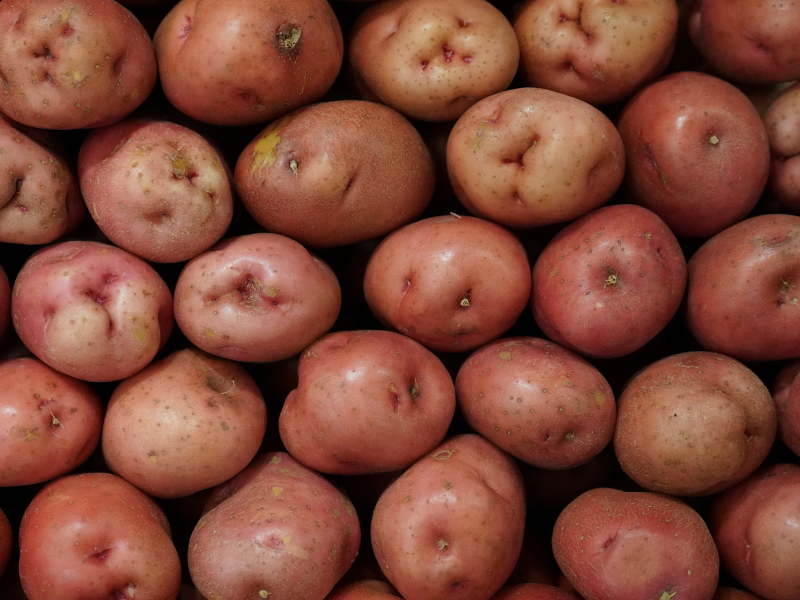
Potatoes are best kept in a cool, dark, dry place, according to The Little Potato Company.
Keep them in a pantry or cellar, as the cold air in the refrigerator makes the starches turn to sugars, which can change both the taste and texture. You also shouldn't keep them in plastic bags; instead, try paper bags with ventilation.
Try not to store fresh corn at all.
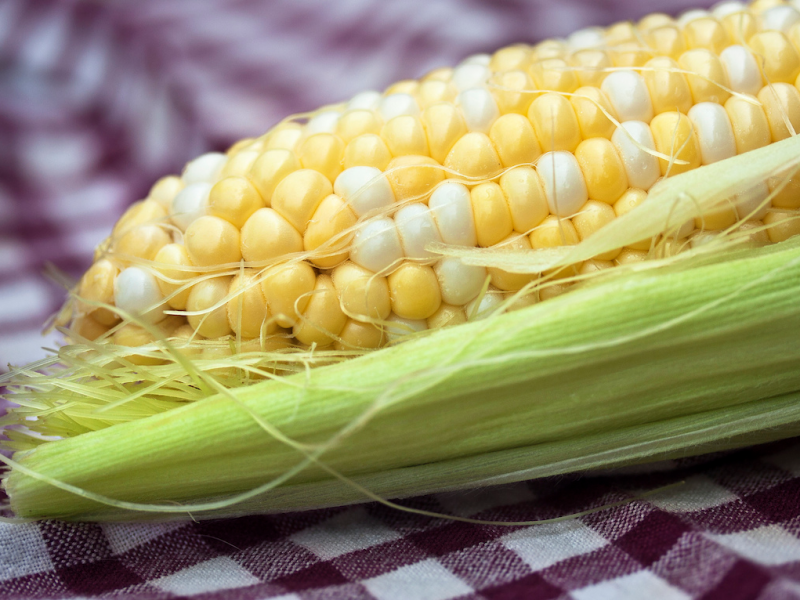
If you're buying fresh corn from the store, you should eat it immediately, rather than storing it in the refrigerator for a few days, according to the Kitchn.
Corn is best when it's picked. If you need to store it, keep it in the husk, and only leave it for about three days.
Wrap lettuce and fresh greens in a paper towel to keep them fresh.
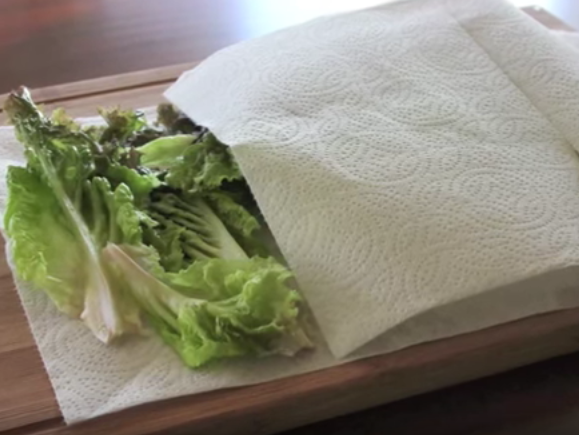
When lettuce is exposed to moisture for long periods of time, the leaves become soggy and slimy. To keep it fresh, first make sure it's dry. Take a large plastic storage container and line it with paper towels. Put the lettuce in an even layer, cover it with paper towels, then repeat, without jam-packing the container. Add the lid and put in the fridge.
According to The Juice Detective, this is the best way to keep lettuce fresh for a long time.
Make sure your cucumbers aren't that cold.

Cucumbers don't react well to being very cold for a long time, as it makes them spoil faster.
Epicurious recommends washing them, thoroughly drying them (any moisture can make them go bad quickly), then loosely wrapping them in a paper towel or dish towel and putting them in a ventilated plastic bag. Make sure they aren't in the coldest part of your fridge or near the freezer.
Keep garlic out of the refrigerator.
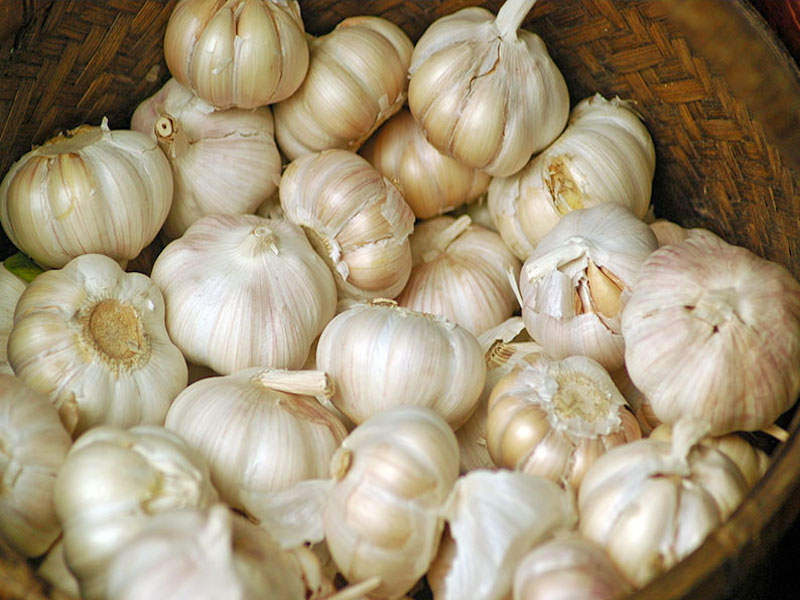
Garlic shouldn't be kept in the fridge and prefers cool, shady spots. You should keep garlic at room temperature on the counter in a container that is well ventilated. Good Housekeeping recommends using mesh bags.
Make sure your Brussels sprouts are in a container.
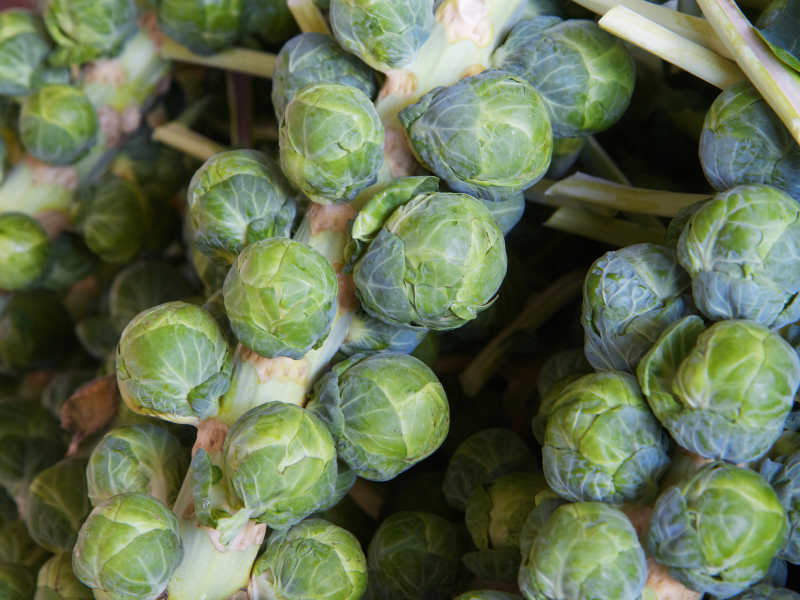
Brussels sprouts are best when left on their stalk, but either way, The Kitchn recommends leaving all of their outer leaves intact. You can keep them in fridge in a bowl or a storage container with no lid. You might notice the outer leaves wilting, but the inside will stay good.
Put asparagus in water to keep it fresh.
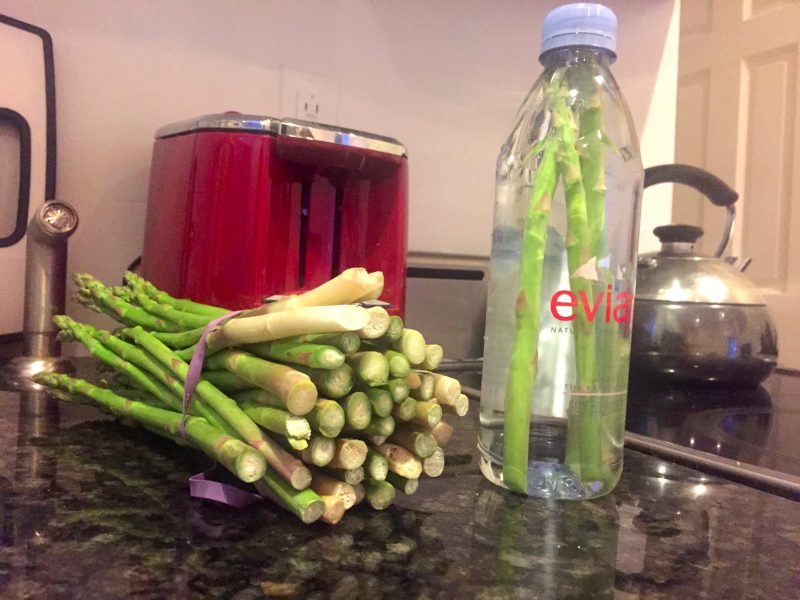
Storing asparagus can be a bit tedious because this veggie actually needs water to stay fresh. Trim off about a half-inch at the end of each stalk, then place the bunch standing up in a bowl or container with a small amount of water in it. If you really want them to last a few days, cover the tops of the stalks with a plastic bag.
Read more: We made the pricey asparagus water that Whole Foods was selling in California
Leave eggplant out of the refrigerator.
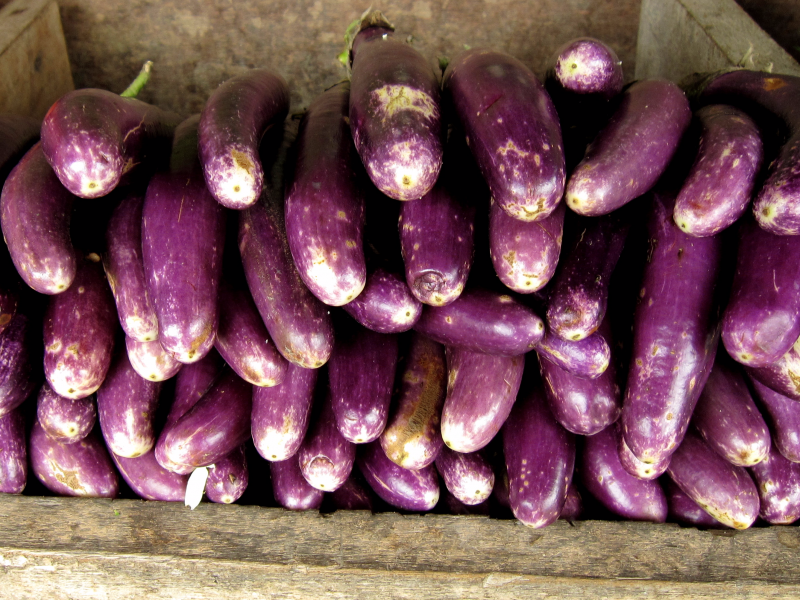
Eggplant is sensitive to cold temperatures and is best kept at room temperature, out of the fridge, to make it last longer.
The Kitchn recommends you keep it in a cool, dry spot, away from direct sunlight. You can put it in a vented bowl, but don't put it in a plastic bag.
Wrap celery in aluminum foil to keep it fresh.
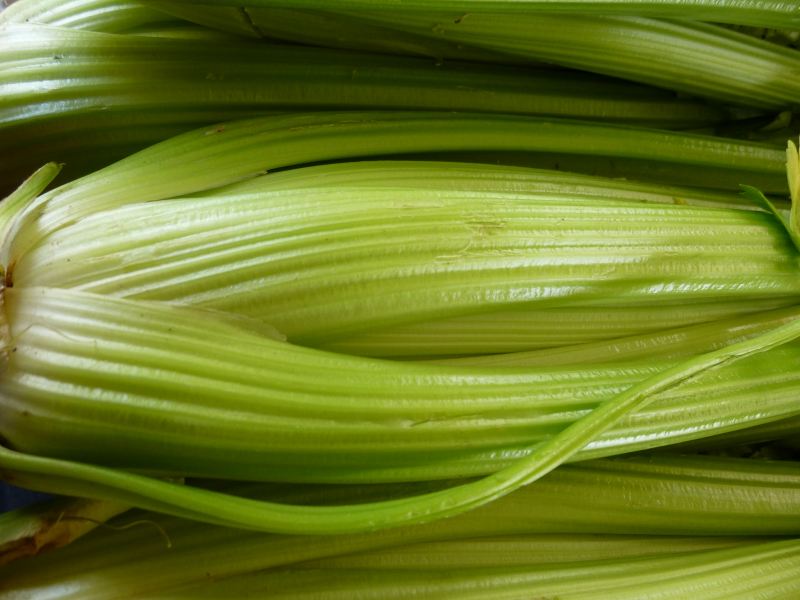
Celery needs some hydration to stay fresh - when it loses water, it becomes limp and wilts. The best way to store it is to wrap it in aluminum foil. According to Cook's Illustrated, it should be wrapped tightly enough so the moisture doesn't escape, but not so tight that the edges are shut.
Always remove the greens from beets before putting them in the fridge.
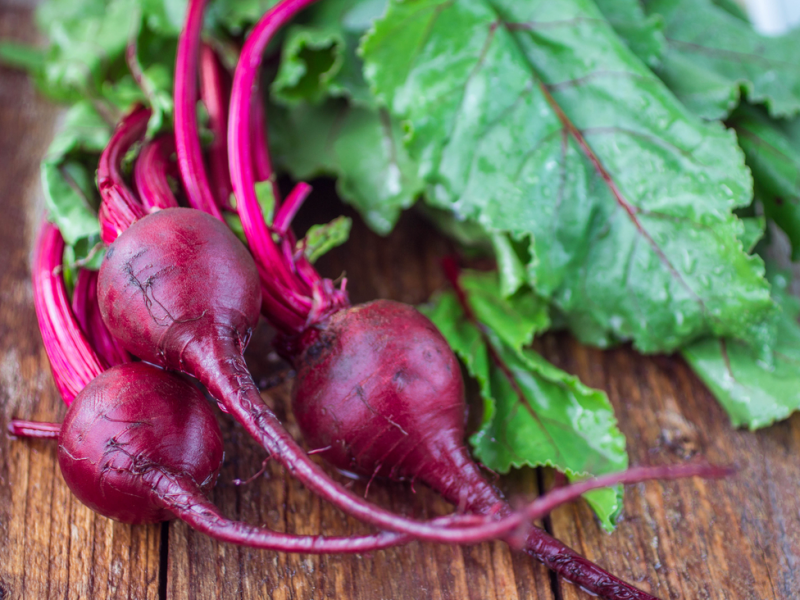
Beets can last for up to three months if you store them correctly.
Extra Crispy recommends you separate the beet greens from the actual beetroot, as the greens go bad quickly and can then make the beets go bad. Once the greens are off, put them in a plastic bag, seal it, and put them in the crisper drawer in the fridge.
Keep scallions in water.
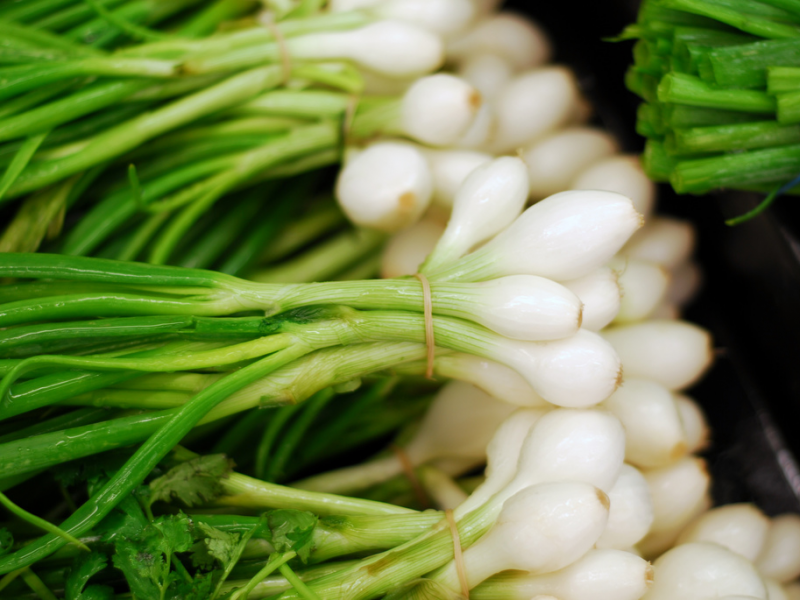
Scallions can be kept in the fridge, according to The Kitchn, and the best way to store them is to remove the rubber band around them, stand them up in a jar filled with some water, and then cover the whole thing with a plastic bag.
Keep winter squash dry and cool.

Bonnie Plants warns against storing your winter squash in the fridge, as they last longest when stored in a cool, dark, well-ventilated place.
The one exception is acorn squash, which should be kept in the fridge.
Put your herbs in water.

Don't leave fresh herbs in the bag they came in. Serious Eats recommends snipping off the bases of the stems and removing any discolored or wilted leaves. Put them standing up in a large mason jar with an inch of water at the bottom.
Cover the top of the jar with an overturned plastic bag sealed with a rubber band, and put in the fridge.
Visit INSIDER's homepage for more.

